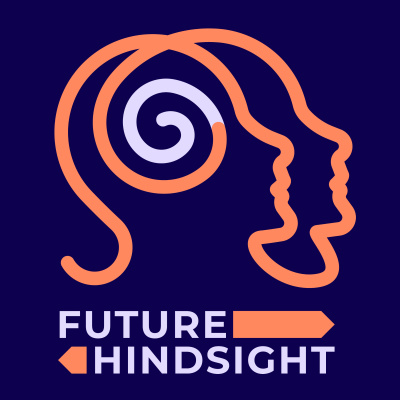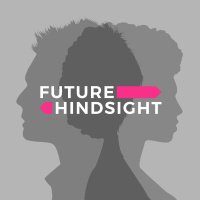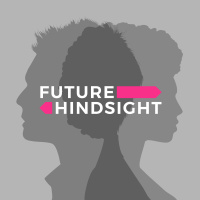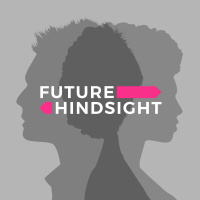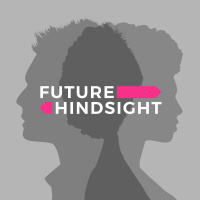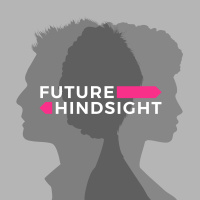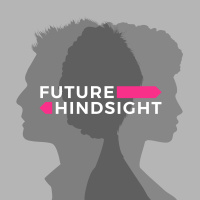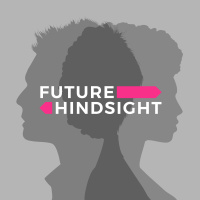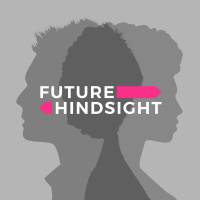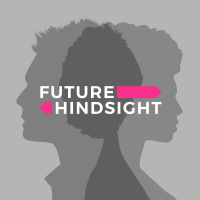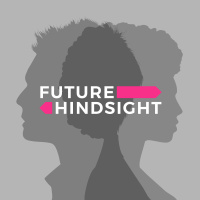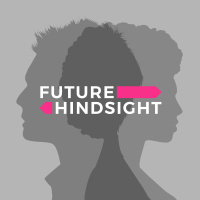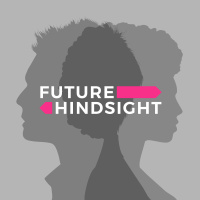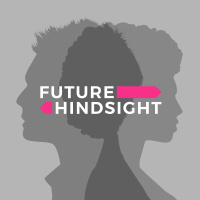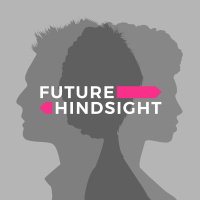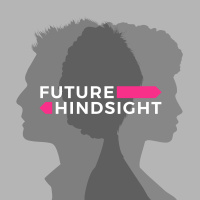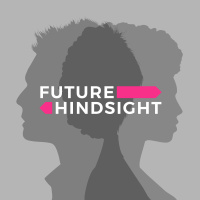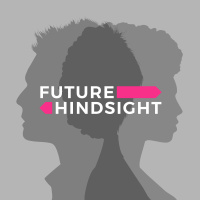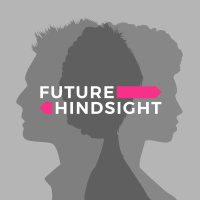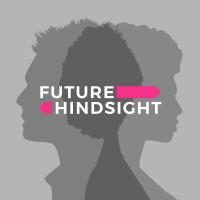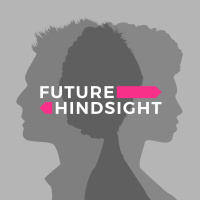Synopsis
Exploring the intersection of civic engagement and civil discourse.
Episodes
-
Kathryn Edin
06/04/2019 Duration: 27minThe end of welfare Welfare ceased being guaranteed after reform in 1996. Although the safety net for the working class was strengthened through tax credits, the safety net for those who are jobless disappeared. In its current state, the welfare system is overwhelming and underfunded. States are given block grants that they can spend at their discretion. For example, Louisiana spends its money on anti-abortion clinics. As a result, over the course of a year, about 3.5 million children live in households with virtually no cash income for at least 3 months. Cash is king Cash has the ultimate function: it can be used to pay rent, utilities, food, school supplies, and more. Although food stamps (SNAP) and Medicaid help needy families, these cashless forms of assistance cannot address other necessities in life. Access to cash can be pivotal to keeping a job – to fill your car with gas so you can go to work – or a roof over your head while you look for a new job after being downsized. The poor are true Americans Ame
-
Stephen Pimpare
30/03/2019 Duration: 26minPoverty is widespread Hardship in America is common. In all of rich democracies, we have the highest rates of poverty among the elderly and also among children. In fact, the majority of Americans will be poor for a significant period of time over the course of their lives: 62% percent will have their income at the bottom 20 percent for a year or more in their adult life, and 42% percent have income for a year or more at the bottom 10 percent of the distribution. About 21% of children live in families with incomes below the federal poverty level. Misconceptions about poverty Americans perceive poverty to be the result of bad decisions and judgments, a moral failure of an individual. Most poverty is, in fact, insecurity because the poor do not have stable, well-paying jobs. Most of the poor do have jobs, but they slip in and out of the official poverty rate on a regular basis. They are living on the margins and are one crisis away from devastation. The immense stress due to being poor causes a cognitive impairm
-
Gail Joseph
23/03/2019 Duration: 24minInvest in early learning Because the foundation for all of life’s successes -- whether academic, social, or emotional -- is laid in the first five years of life, it is critically important to invest in early learning. This is especially true for children from low income homes, who often do not have access to high quality early learning programs. As early as kindergarten, underprivileged children can be as much as 1.5 years behind the average child and it is very difficult for them to catch up. High quality early care and education is an act of social and educational justice. Invest in teachers The early learning workforce is largely female, very diverse, and often paid low wages. Because there is also a gap to access high quality professional development and college degrees, much of this workforce is poor. In a high-quality early learning preschool program, the teachers are well educated and fairly compensated. The quality of early care and education is almost entirely dependent on the teacher in the classroo
-
Dan Weissmann
16/03/2019 Duration: 25minPicking an insurance plan is nearly impossible Although it is no surprise that picking an insurance plan is complicated, it turns out it is nearly impossible. A study by George Loewenstein at Carnegie Mellon reveals that a majority of Americans will choose a suboptimal plan. With access to a full analysis of all the costs and regulations, 80% of us can make a sound decision. Insurance companies drive up costs Insurance companies are not motivated to keep costs down because they can pass them on to us, their customers. Large hospital groups and pharmaceutical companies are also active participants in driving up costs. Patients and independent doctors have no influence in negotiating overall costs down. This is why premiums, deductibles, and co-pays are increasing. Be vigilant Always do good research before seeing a doctor to make sure you are in network and you understand how much you’ll need to pay out of your own pocket. Always double check the bills afterwards. Invariably, mistakes are made and it will take
-
Maria Foscarinis
09/03/2019 Duration: 24minThe housing crisis started with a policy decision The leading cause was cutbacks to federal funding for housing for poor people starting with the Reagan administration. In 1978, the federal government was funding about over 300,000 new units of affordable housing each year. In 1983, that number had decreased to under 3,000 each year. Currently, only one in four poor people who qualify for federal housing assistance actually receives it. Working men and women who do not earn enough to pay for housing, such as minimum wage workers, cannot afford housing based on affordability guidelines set by the federal government. Housing is a human right Without housing, nothing else is truly possible. Housing is essential for families, children, adults, the ill, and the disabled. Housing is recognized as a human right by the UN and by international treaties, including some that the United States has signed on to. However, even though Congress has set a goal for decent, affordable housing for every family 50 years ago, it h
-
Max Kenner
02/03/2019 Duration: 22minMax Kenner is the founder and executive director of the Bard Prison Initiative, a college that is spread across six interconnected prisons in New York State. We discuss the enduring value of the liberal arts, the immense power of an education on reducing recidivism, and the critical importance of deep investments in human beings. Education must be high quality The students at BPI have a drive to learn that reflects their awareness of the stakes of their education for the future. Thanks to the high-quality education that BPI delivers, students are able to compete for coveted spots for graduate programs at universities like Columbia, Yale, and NYU, and successfully complete their degrees there. Many BPI alumni go on to careers in the public sector that affect their home communities. Be Fearless Despite the many naysayers and the persistent cynicism that Max faced, he marched on and did what was said to be impossible. He was so successful at convincing the United States that higher education should be returned t
-
Stephen Bright
23/02/2019 Duration: 23minStephen Bright served as the director of the Southern Center for Human Rights in Atlanta, and is currently a lecturer at Yale Law School, as well as professor of practice at Georgia State College of Law. We discuss the death penalty in the United States and its relationship to poverty, race, and disadvantage. Poverty and Competent Representation The Supreme Court only decided in 1932 that a person in a death penalty case had a right to a lawyer. However, the government has competing interests when it must provide legal representation to a person whom it is trying to execute or imprison. Many court-appointed lawyers are not competent to represent someone accused in a capital case, ranging from falling asleep during trials, showing up drunk, or being plain inexperienced for capital cases. In a system like this, the people on death row are largely the most vulnerable in our society: extremely poor, victims of racism, suffering from mental illness, or with limited intellectual capabilities. Race and the Death Pe
-
Ross Morales Rocketto
16/02/2019 Duration: 24minRoss Morales Rocketto is co-founder of Run For Something, an organization that supports diverse, young progressives running for state and local office. We discuss which candidates win, why building a bench of local and state politicians is important, and how an increase of candidates leads to better voter turnout. The Importance of State and Local Office Eighty percent of the laws that are passed in this country are passed at the state and local level, which include the big issues of the day, such as health care, education, or criminal justice reform. Victories in these races have real impact. For example, as a result of elections in 2017, Medicaid was expanded for tens of thousands of families in Virginia. Successful Candidates What the winners have in common are that they are truly representative of their communities, both in their racial and ethnic backgrounds, as well as in their lived and shared experiences. They all work really hard to get elected. And finally, these candidates are not running to be som
-
Season 5 Trailer: Ross Morales Rocketto
07/02/2019 Duration: 01min"Telling these types of stories, showing people that it's not just white dudes who are lawyers, who have a lot of money, that can do this type of work is one of the most effective ways for us to try to show folks they can do it too." Ross Morales Rocketto, co-founder and chief program officer of Run For Something, kicks off the new season with a conversation about diverse, young candidates for state and local office. Tune in on February 16 for Season 5 of Future Hindsight!
-
Ted Dintersmith
17/11/2018 Duration: 24minHuman Potential Education should be a path for children to develop into self-directed, self-supporting, skill-equipped young adults. This may or may not include a college education, but will require high levels of critical thinking skills. Creativity and innovation will be an integral part of any job in the future. Standardized Tests and College Readiness The norm today is to teach what is easy to test, such as narrow arithmetic, instead of what’s important to learn. This turns the purpose of education on its head. Standardized tests and much of college ready content are not well retained by students and do not serve them to be ready for life. Democracy A healthy democracy thrives when citizens can think critically and independently. Education must make teaching citizenship skills a priority. Our collective humanity depends on a society of creative and conceptual thinkers who are committed to making positive contributions to their community. Find out more: Ted Dintersmith is an avid advocate and change agent
-
Ben Theodore
10/11/2018 Duration: 23minLocal Politics The impact of individual and group efforts can be decisive in local political races, such as in the elections for a judge, a district leader, or in the State Assembly. Having one-on-one conversations about what is happening in our own community is powerful because we discuss the policy choices that directly affect our lives. Get Involved! Citizens are the players in politics. They have the opportunity and the responsibility to determine who is elected into office. When citizens are involved, they are taking part in shaping public policy decisions. When they choose not to be engaged, they are assenting to the status quo, as opposed to fighting for the way that things could be. Public Policy and Politics We live in a society that is shaped by our public policy choices, which are directly derived from the results of political elections. We need idealistic people in both government and politics, who care about the outcomes and the policy choices that we make as a society. Find out more: Ben Theodor
-
Robert P. Jones, Ph.D.
03/11/2018 Duration: 23minVoting People broadly agree that voter turnout should be higher and that voting should be easier, for example by making Election Day a holiday. Although everyone over age 30 is convinced that voting is a fundamental way to create change, only half of young people agree. Surprisingly, a quarter of Americans are unsure about the most fundamental requirement to be eligible for voting: you have to be a citizen. Demographic Changes America is no longer a majority white Christian country. However, the diversity in the American religious and ethnic landscapes today will not show up at the ballot box until 2024, if current turnout rates stay the same. Because the voting population is primarily older and whiter, the ballot box rewinds the demographic change clock by about a decade. Bucking the trend this year, black women are poised to turn out at much higher rates than they historically have. Partisanship Our nation’s tribalism has devolved to the point where many have stopped examining the issues and instead have us
-
Max Feldman
27/10/2018 Duration: 24minThe Powers of Voting Voting is our civic duty and our opportunity to participate in our democracy. We can hold our leaders accountable and also express what we believe this country can and should be. Voting means a lot to people in traditionally disenfranchised communities because it serves as an important expression of who we are as citizens. If it weren’t powerful, nobody would try to suppress our right to vote. Voter Suppression Strict voter ID laws, voter roll purges, early voting cutbacks, and documentary proof of citizenship are the most effective ways to disenfranchise voters. Since the wave election in 2010, at least 23 states have enacted voter suppressive laws that are in place for this year’s election. This trend was made worse when the Supreme Court struck down Section 4 in “Shelby County vs. Holder” in 2013, which eviscerated the pre-clearance process and made room for states to enact stricter voting laws without oversight from the federal government. Expansive Pro-Voter Laws The most promising a
-
Cristóbal Alex
20/10/2018 Duration: 23minPolitical Power The proactive strategy of Latino Victory to build power through elections is a recipe for success. They focus on grooming and training candidates who represent their community’s values, empowering Latino voters, and developing a pipeline of Latino donors. The proof is in the pudding: great Latino candidates are exploding Latino turnout. Demographics Latinos represent 18% of the U.S. population and natural-born Latinos are the fastest part of demographic growth. Half of them live in states that are not battleground states, which means that most candidates ignore them. In addition, Latinos only make up about 1% of all elected officials. The 2016 election shook this dynamic up, the way that Prop 187 mobilized Latinos in California. Four of the most competitive U.S. Senate races are in Latino states: Texas, Florida, Arizona, and Nevada. Latino issues are American issues Surveys show that Latinos prioritize on the issues just like most other Americans. Healthcare tops the list, followed by a strong
-
Phil Polakoff
13/10/2018 Duration: 22minPhil Polakoff is a physician with a distinguished career in public health and clinical medicine, the CEO of A Healthier We, and a consulting professor at Stanford University of Medicine. We discuss how an emphasis on prevention coupled with innovations in healthcare access and delivery can help us share greater health and equity for all Americans. Demand Better Healthcare Policies We need a more efficient and effective health delivery system that encompasses all of us. Follow political candidates who are engaged in nuanced discussions about access, quality, and costs, instead of simple slogans. Social determinants such as housing, income, transportation, education, and the environment must be a part of any debate on healthcare. State or local level initiatives might lead on innovation. Opportunities for Reform Good health must start with personal responsibility and an emphasis on prevention. Access to healthcare should be optimized, both to avoid under utilization or over utilization and to address shortages
-
Ashley Allison
06/10/2018 Duration: 21minCensus data supports communities Government and businesses rely on census data to provide the necessary services that make healthy and vibrant communities possible. The data reveals how many grocery stores, pharmacies, hospitals, or schools are needed, and even influence public transportation routes and budgets. An accurate and fair count will ensure that adequate resources are allocated. Undercounting and the citizenship question Asking whether the census participant is a citizen could decrease the count because people are afraid that it would undermine their safety and privacy. Undercounting hurts all communities because it will imply that they need fewer resources. The U.S. Conference of Mayors, a bipartisan body of mayors, has joined a lawsuit to take the question off the census. The basis for political power Political redistricting happens as a result of significant demographic shifts. After the 2010 census, 18 states changed their number of congressional seats and Electoral College votes, starting with
-
Esther de Rothschild and Aicha Cherif
29/09/2018 Duration: 24minThe power of love and relational organizing When people realize that their vote matters personally to others, they are more likely to show up and exercise this right. Ineligible voters, such as teenagers or formerly incarcerated people, can make an impact on elections by drawing attention to how election results concern them and move their network of eligible voters to show up at the polls. Amendment 4 There are over 1.4 million people who are disenfranchised for life in the US, most of them for a small felony conviction. Amendment 4 is an initiative in Florida that aims to restore the right to vote to former felons. If we believe in second chances and the capacity of people to change for the better, a more representative voter pool would include those who have paid their debts to society. Understand the issues The disenfranchised have a variety of policy issues that are often overlooked by those who do have the right to vote, such as on immigration or youth. “Movers” bring attention to the issues that affec
-
Brian Miller
22/09/2018 Duration: 23minBrian Miller is the Executive Director of Nonprofit VOTE, an organization that partners with other nonprofits to integrate voter engagement into their ongoing activities. We discuss the importance of promoting voter registration to achieve full representation in excluded communities, and the benefits of a non-partisan, in person approach to do so. Nonvoting feedback loop The main reason people don’t vote is that nobody has reached out to them and asked them to vote. Furthermore, most non-voters are not affiliated with either party. Anyone with a history of voting is more likely to be contacted by campaigns, increasing the odds that this person will vote. If a person does not normally vote, campaigns are unlikely to reach out, which in turn reinforces the non-voting habit. Asking to register and to vote Many studies show that face-to-face engagement is one of the most effective ways to get people to show up at the polls. Making eye contact and asking someone to register and to vote because his or her opinion
-
Season 4 Trailer: Brian Miller
15/09/2018 Duration: 01minA sneak peek of the first episode of Season 4: Brian Miller makes a case for registering and voting. National Voter Registration Day is on September 25, 2018.
-
Pam Elam and Namita Luthra
25/08/2018 Duration: 22minPam Elam and Namita Luthra serve on the Board of Directors of the Elizabeth Cady Stanton and Susan B. Anthony Fund. Their Monumental Women campaign will bring the first statue commemorating real women to New York City’s Central Park in 2020. We discuss the importance of honoring women and their contributions to society in public spaces. Rethink history to shape the future Women and people of color have been largely left out of our nation’s narrative, instilling the impression that they made no significant contribution to our society. Rethinking history in a more inclusive way allows us to see that a diverse group of people made a difference, and that all of us can shape our world and our future. It matters who we honor with monuments in public spaces. The worth of women The Monumental Women campaign to honor Elizabeth Cady Stanton and Susan B. Anthony with a statue in Central Park encountered an uphill battle that reflects how women continue to be excluded. The dearth of women in boardrooms, in the highest e
